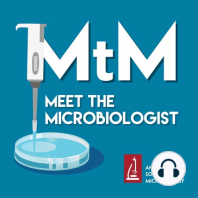24 min listen

080: Implementing One Health with Mathew Muturi
080: Implementing One Health with Mathew Muturi
ratings:
Length:
37 minutes
Released:
Apr 12, 2018
Format:
Podcast episode
Description
Veterinarian and epidemiologist Mathew Muturi tells how a Rift Valley Fever outbreak led to implementation of One Health-based policies. Muturi talks about his One Health training and its applications for health and biopreparedness. Julie’s Biggest Takeaways: One Health Simple communication between experts helps facilitate implementation of one health in public systems. Sitting experts in human and animal health in the same office allows easier communication between these different health sectors. One Health policies involving close collaboration between animal and human healthcare workers were first implemented in Kenya in response to the threat of avian influenza, but were discontinued after the threat waned. Human cases of Rift Valley Fever, due to spillover from a livestock outbreak, led to the discovery that these collaborative policies could prevent other outbreaks as well, and the policies were reinstated. Zoonotic diseases can often be the most overlooked. Officials of countries where endemic diseases are present may have preparedness plans for serious cases but may overlook something endemic like brucellosis. There are 42 subtribes in Kenya, including diverse languages, religions, and beliefs. Public health interventions do their best to align the local beliefs of the people to minimize risk of pathogen exposure. Featured Quotes: “One health is not a new concept; it’s an old concept that explains the health of humans, animals, and the environment is interconnected. It’s a concept that plays out in everyday life.” “One of the reasons One Health has been able to be successful in Kenya, and that I suggest to other countries wishing to implement this program, is the sitting together, talking together. Make sure that you work together, see each other - I don’t think communication works well enough if it’s on an ad hoc basis. The thing that has worked for us is sitting together.” “The most important aspect of One Health is the fact that that it’s impossible to control diseases that come from animals only by focusing on humans. It’s like trying to concentrate on putting out fires without ascertaining where the fires are coming from.” “Endemic diseases, despite the fact that they’re ever-present, are often the most ignored.” “A lot of the risk practices are cultural, and cultural change is very slow.” “The value of One Health is much more than the investment required to put into it. It’s one of the few things I’ve seen actually work in implementation of disease control strategies, in surveillance and in general disease control. It’s worked for Kenya and I believe it can work for all other countries.” Links for the episode: Republic of Kenya Zoonotic Disease Unit Prioritization of Zoonotic Diseases in Kenya, 2015. Plos One.
Released:
Apr 12, 2018
Format:
Podcast episode
Titles in the series (100)
MTS6 Bruce Rittmann - Microbes, Waste and Renewable Energy by Meet the Microbiologist